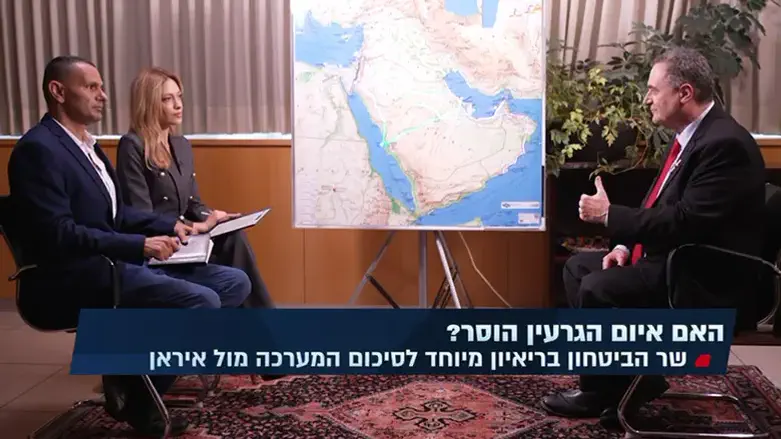
Over the past few days, a flurry of criticism has been aimed at President Donald Trump over remarks he made about Israel. Headlines, tweets, and hot takes are flying from every direction — many of them coming from the same voices who’ve spent the last eight months doing little but tearing Israel down.
And let me be clear: I’m not excusing what he said, or how he said it. But here’s something I’ve learned over the years — when you judge a story from the middle, it rarely makes sense.
If you freeze the frame on any single moment of a much larger narrative, you can make the hero look like the villain—or mistake a setup for a failure. That’s exactly what’s happening here.
And it’s exactly why I’m not worried.
Because I believe that when this story is told in full—when we get to the part where we finally see how it all comes together—we’ll look back at this moment with entirely different eyes. And we’ll realize that every move, every statement, every perceived detour, happened precisely as it had to. Just like our Sages have always taught: Hakol bidei Shamayim—everything is in the hands of Heaven.
If that sounds naïve, remember this isn’t the first time we’ve been here.
One of the most famous examples in our history comes from the Exodus. Pharaoh wasn’t just stubborn. God hardened his heart. At first he refused to let the Israelites go. Then he gave in. Then he changed his mind again and sent his army after them.
If you were living through that in real time, what would it have looked like? Confusion? Chaos? Weak leadership? Mixed messaging?
We know from our Torah that the people were deeply shaken. At one point, staring down Pharaoh’s army at the sea, they cried out in despair and said, “Were there not enough graves in Egypt, that you brought us out here to die?” (Shemot 14:11). They were terrified. Angry. Hopeless. They couldn’t see the bigger picture.
But God could.
Because what looked like collapse… was actually the setup for the greatest miracle in history.
It’s also important to point out that as much credit as we give to President Trump and Prime Minister Netanyahu for what’s unfolded these past two weeks—none of it, absolutely none of it, happened without the Will of God. His Hand, His voice, and His plan guided every decision that led to the victory we see today.
Yes, it’s easy to say we should’ve done more for the Iranian people. That we should’ve included our hostages in Gaza in this. And on the surface, I agree—those are deeply emotional, human responses.
But we’re not operating on the surface. God has a plan. And sometimes it only makes sense when you zoom out. The fact that we’re still standing here today—strong, protected, and alive—is proof that He’s not done writing this story.
Let’s be honest: the ending of this war hasn’t felt as loud or as final as we expected. People are still asking: Why did we stop? Why now? What about the hostages in Gaza? Why didn’t we finish the job? And they’re not wrong to ask.
Emotionally, this kind of ending stings. It feels incomplete. It feels like a missed opportunity. And for families of hostages still waiting, or citizens still grieving, it almost feels like betrayal.
But this is where faith becomes real.
Faith in God, obviously — but also in the leaders He chose and the strength He gives them.
If we believe God orchestrated the strike, the success, and the silence of our enemies, then we also have to believe He orchestrated the pause. That even the restraint — the ceasefire we didn’t want — is part of the same divine plan.
God is not confused. And He doesn’t need our play-by-play approval to deliver victory in His way, in His time.
It’s hard. It’s painful. But it’s not meaningless. And it’s not over.
Because leadership is not always linear. And Divine Providence rarely unfolds in straight lines.
Whether it’s Pharaoh, Haman, or Donald Trump, the Torah reminds us: Lev melachim v’sarim b’yad Hashem—the hearts of kings and rulers are in the hand of God (Mishlei 21:1). He is the only one with the full script.
So yes, let’s hold our leaders accountable. Let’s push for clarity and strength. But let’s also remember that we are not alone. And the story is far from over.
Because the Author of our story doesn’t write tragedies.
He writes Redemption — even if there are bumps along the way.